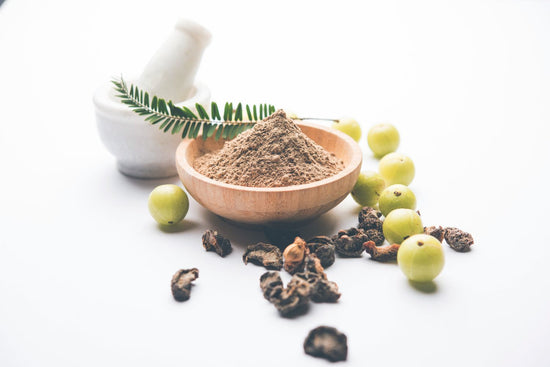Everything you need to know about this possible galactagogue
One of the biggest concerns of a breastfeeding mom is making sure her baby is getting enough milk. On some occasions, a nursing mother may need help in boosting her supply. Today, fenugreek has become a popular remedy. Frequently mentioned in online mom groups, referenced by friends, and discussed within the lactation community, this herbal supplement claims to increase milk supply.
But you are right to wonder, does it work? How do I use it? Is it safe? And what exactly is fenugreek? Taking the time to learn about what you ingest while nursing is great and a responsible choice. To help you on your quest for knowledge, here is everything you need to know about the herb Fenugreek.
What Is Fenugreek?
Fenugreek, a short plant with small white flowers, is a herb native to Asia and the Mediterranean. It has long been used in alternative medicine practiced by both Chinese and Indian cultures. Traditionally fenugreek is believed to remedy digestive issues, induce labor, and boost milk supply.
You may have already tried fenugreek without even knowing it. It is common in many Indian food dishes as it is used in the spice blend garam masala. It has a sweet and slightly nutty flavor. Some people get the taste of maple syrup from it.
Fenugreek and Milk Supply
There is no definitive evidence that fenugreek boosts milk supply. That being said, many nursing mothers claim that they have had great success with fenugreek. Some report that they noticed an increase overnight while others say that it took a few days to see results.
Additionally, some mamas can stop using the supplement once they achieve a boost in output while others must continue taking it to see results. As you can tell, the research is unclear.
Some of the studies are very small or looked at a tea or product that includes fenugreek rather than as a stand-alone ingredient. Unfortunately, many of the studies that have been done on fenugreek are not formalized or high-quality enough to prove that the supplement increases breastmilk in lactating mothers.
It is hypothesized that the increase in production actually may be psychological. Others think that the delivery method may play a role, such as the extra hydration from drinking fenugreek tea.
Nevertheless, some lactation consultants and medical professionals may recommend it.
When To Take Fenugreek When Breastfeeding
Do You Have Low Supply?
The first thing to do when deciding if you should take a lactation boosting supplement is to determine if you truly have a low supply. This can be a tricky thing for both new and experienced moms alike.
As your body adapts to your nursing infant's needs, it may seem like you are producing less milk. Your breasts may feel softer and less full. Additionally, they may not leak in between sessions, and let downs may become less noticeable. These things don’t necessarily indicate low supply.
Also, if your baby seems to be nursing more frequently, nursing longer, or not guzzling milk like they used to you may worry about low supply. These things aren’t great indicators either as your baby could be learning how to handle your flow, going through a growth spurt, or just changing their patterns.
If you think you have low supply the best thing is to work with your pediatrician and/or a lactation consultant. They can help you figure out if your supply is low by checking that your baby is gaining weight appropriately and having a satisfactory output of wet and/or soiled diapers.
This is an important step because you don’t want to inadvertently cause an oversupply issue by taking a supplement.
Trying Fenugreek Per Doctors Recommendations
If your doctor or lactation consultant gives you the go-ahead to try fenugreek, then you may do so if you wish. It is important to start slowly and give it adequate time to work. It is also helpful to know the side effects and outcomes of fenugreek.
Fenugreek is “generally recognized as safe” by the Food and Drug Administration (FDA). Many moms don’t experience issues with the supplement and tolerate it well. It hasn’t been shown to produce negative effects on nursing infants either, though some moms have reported their baby seemed to have more gas.
As mentioned, there isn’t a great deal of research on fenugreek alone.
Side Effects and Risks of Fenugreek
Though most moms tolerate fenugreek well, some do not. The following symptoms have been reported:
- Gas
- Nausea
- Vomiting
- Upset stomach
- Worsening asthma symptoms
- Liver toxicity (very rare)
- Maple syrup odor from perspiration, urine, or breastmilk
Many of these symptoms subside shortly after the mother stopped taking fenugreek. If you experience any of these side effects it is a good idea to hold off on taking any more fenugreek and contact your healthcare provider.
The FDA does not regulate fenugreek, like other herbal supplements, for either safety or effectiveness. Fenugreek may pose a risk to pregnant women. Those that are expecting are advised not to consume fenugreek because it can cause contractions. Remember, it was traditionally used to induce labor!
Other considerations include its ability to mimic estrogen in the body. These can have negative outcomes for women with hormone-sensitive cancers. It is best to work with your doctor and monitor yourself for any changes (good or bad!).
Ways To Consume Fenugreek
There are a variety of ways to consume fenugreek. You can either take it alone or as part of a mixture. Blends containing fenugreek are very common. The herb can be found in lactation teas, smoothie mixes, cookies, and more.
Possible ways to consume fenugreek include:
- Supplements
- Seeds
- Sprouts
- Powder
- Leaves
- Tea
- Oil
Benefits of Fenugreek
The jury is still out on whether or not fenugreek increases milk supply, but for some mothers, a boost in lactation certainly was a benefit.
Whether the herb was truly working or the increase was due to the placebo effect, better output is a possible benefit. Another benefit is an increase in hydration should you consume fenugreek as a tea.
A Friendly Herb For Nursing Mothers
If your doctor gave you the go-ahead and you have an interest in increasing your supply, fenugreek may be a suitable option. Just remember, do your research, start slowly, and contact your doctor should you experience any negative side-effects.
Posted by Shruti Mishra
Shruti is the founder of Freshly mom. She is a graduate from Natural Gourmet Institute, NY and a certified IIN Nutritionist. She has been working with food & nutrition since 8 years and is also a fresh mom herself.





